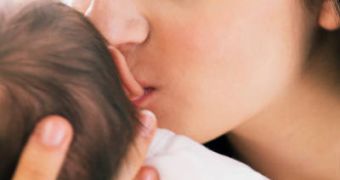A breakthrough study by psychologists at the University of Haifa has revealed that adversities suffered by mother rats have significant consequences on their offspring's behavior, later on in life. The researchers clarified that the adversity did not affect the pregnancy directly, but possibly through other underlying mechanisms. They are still trying to determine exactly how stress to the mother influences her offspring. During the experiments, the rats were divided into two groups, one for control, in which would-be mothers lived undisturbed, and one for the actual tests, in which the female rats were subjected to stressing factors (stressors) for seven days before conception.
"The findings show that adversity from a mother's past, which does not directly impact her pregnancy, will affect her offspring's emotional and social behavior. We should consider whether such effects occur in humans too," explains the leader of the investigation, professor Micah Leshem. The finds are published in "The Interplay of Biology and the Environment Broadly Defined" special section of the scientific journal Developmental Psychology.
The team says that this is the first study to look at the effects that stressors applied before conception have on future generations of rats. They argue that such factors, which have been overlooked in other studies, could play influence the genetic traits of the offspring. Made up of Leshem, working together with University of Haifa colleague Alice Shachar-Dadon, and Georgetown University School of Medicine professor Jay Schulkin, the team is the first to examine such relationships.
"Everyone knows that smoking harms the fetus and therefore a mother must not smoke during pregnancy. Our findings now show that adversity from a mother's past, even well before her pregnancy, does affect her offspring, even when they are adult. We should be prepared for analogous effects in humans: for example, in children born to mothers who may have been exposed to war well before becoming pregnant," the researcher adds.
In the rat study, offspring of mothers in the test group showed a notable decrease in social contacts with other rats. Also of interest, was that adversity to the mother affected male and female offspring differently – female rats showed increased levels of fear and anxiety, while male rats showed decreases in fear and anxiety. Also, female rats conceived immediately after the mother was subjected to the stressing factors showed high levels of hyperactivity. "We also found that that birth weight was increased in offspring of dams stressed before mating" the researchers added.

 14 DAY TRIAL //
14 DAY TRIAL //